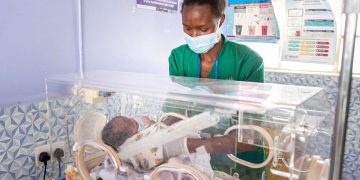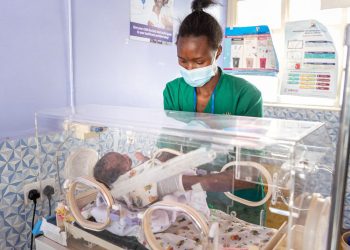Kenya is at a critical juncture, as the government’s failure to meet its co-financing obligation to GAVI, the Global Alliance for Vaccines and Immunization, threatens to leave six million children without essential routine vaccinations.
The outstanding payment of USD $12,485,880 for the fiscal year 2024/2025 has raised alarm among key health advocates, who warn that the country may face severe vaccine stock outs if the funds are not disbursed on time.
The Kenya Women Parliamentarians Association (KEWOPA), in collaboration with the Health NGO Network (HENNET), has raised concerns over the government’s delay in fulfilling its financial commitment to GAVI, emphasizing that this inaction could lead to a shortage of life-saving vaccines and the re-emergence of preventable diseases.
“We issue an urgent call to the Ministry of Health and the National Treasury to take immediate action to fulfill this obligation and make the payment on time,” said Hon. Leah Sankaire, MP and Chairperson of KEWOPA. “Alarmingly, no payment has been made to date, and the deadline of June 30, 2025, is fast approaching.”
The country’s transition from heavy donor reliance to domestic funding has been complicated by its new classification as a middle-income nation. Under the current framework, Kenya is expected to fully fund its immunization program by 2029. However, the pathway to achieving this self-sufficiency is fraught with challenges, particularly as Kenya continues to rely on international donors like GAVI for a substantial portion of its vaccine supply.
“The immunization program is a cornerstone of public health in Kenya, and the current delay in meeting GAVI’s co-financing obligation puts us at risk of losing the gains we have made over the years,” said Dr. Margaret Lubaale, Executive Director of HENNET. “Without timely payments, Kenya will face stock outs of GAVI-supported vaccines, leading to a potential public health crisis.”
The situation has escalated to the point where Women members of parliament have called on the Ministry of Health (MoH) to provide a detailed stock status of vaccines at both central and county levels. KEWOPA has also demanded that the National Treasury present a clear report on the status of GAVI’s co-financing obligations, including paid amounts and proposed future payments.
“This is a critical moment for Kenya’s immunization program,” Sankaire added. “The stock levels, projected vaccine needs, and payment schedules need to be transparent presented to national assembly and acted upon immediately.”
Health experts, including economist Dr. Francis Omondi, have cautioned that the government must prioritize immunization funding as part of a broader strategy to transition away from donor dependence. “We are still heavily reliant on donors, with GAVI financing about 56 percent of our immunization budget. With the US pulling out, and other donor funding uncertain, the gap in financing will only widen,” Dr. Omondi explained.
Dr. Omondi has urged the government to progressively increase the allocation for immunization within the national health budget, proposing a gradual increase from the current 0.5 percent to 3 percent of the total domestic health expenditure.
“The budgeting process must reflect the critical need to safeguard immunization funding,” he added. “We can no longer afford to rely on the mercy of donors.”
As GAVI’s transition plan progresses, the cost of vaccines is expected to rise, especially for newly introduced vaccines.
Wesley Rotich, an economist at Futures Health Consultant, pointed out that it currently costs approximately Shs 12,085 to fully immunize a child in Kenya. He estimated that Kenya will need at least USD $75 million annually to fill the gap left by GAVI’s eventual exit.
Rotich suggested that Kenya explore alternative funding models, including taxes on tobacco, alcohol, and sugar, as well as gaming taxes through the sports fund. “These innovative financing solutions could help cushion the transition and ensure that vaccines remain accessible for all children,” he said.
Dr. Lubaale made an urgent call for action saying that without immediate steps to honor co-financing obligations and secure sustainable funding for immunization, Kenya risks undermining its health security and the well-being of millions of children. As the June deadline looms, the government must take swift action to fulfill its commitments and safeguard the future of the nation’s immunization program.













